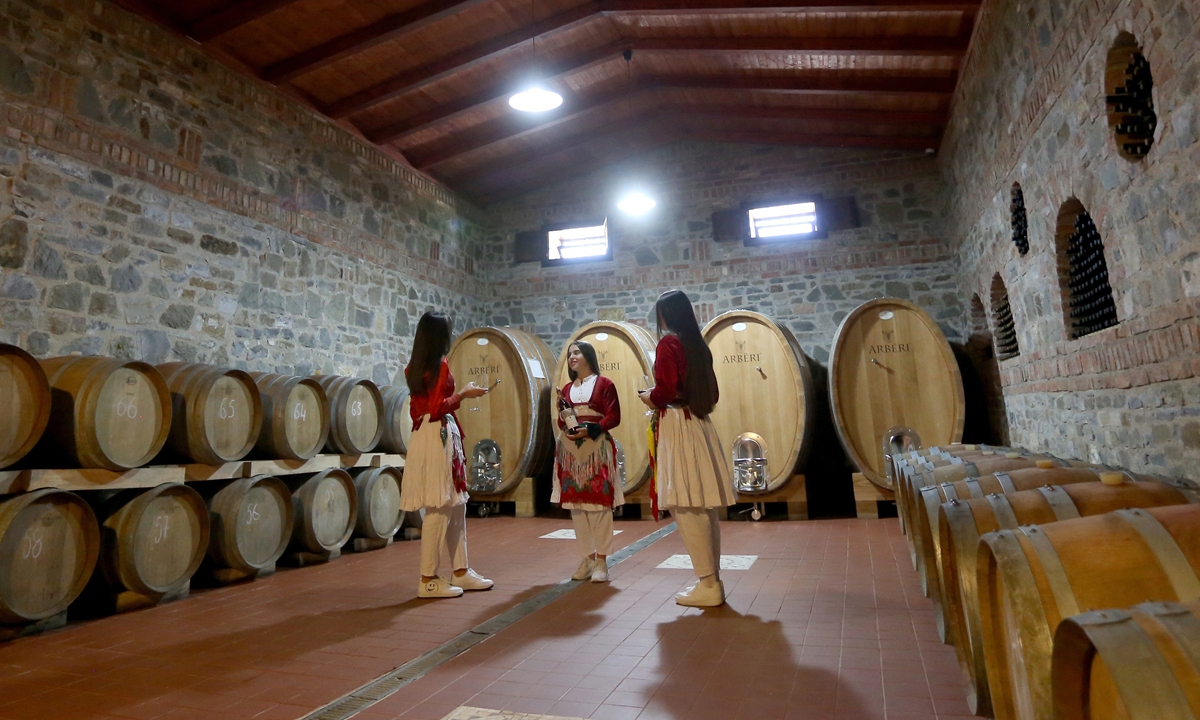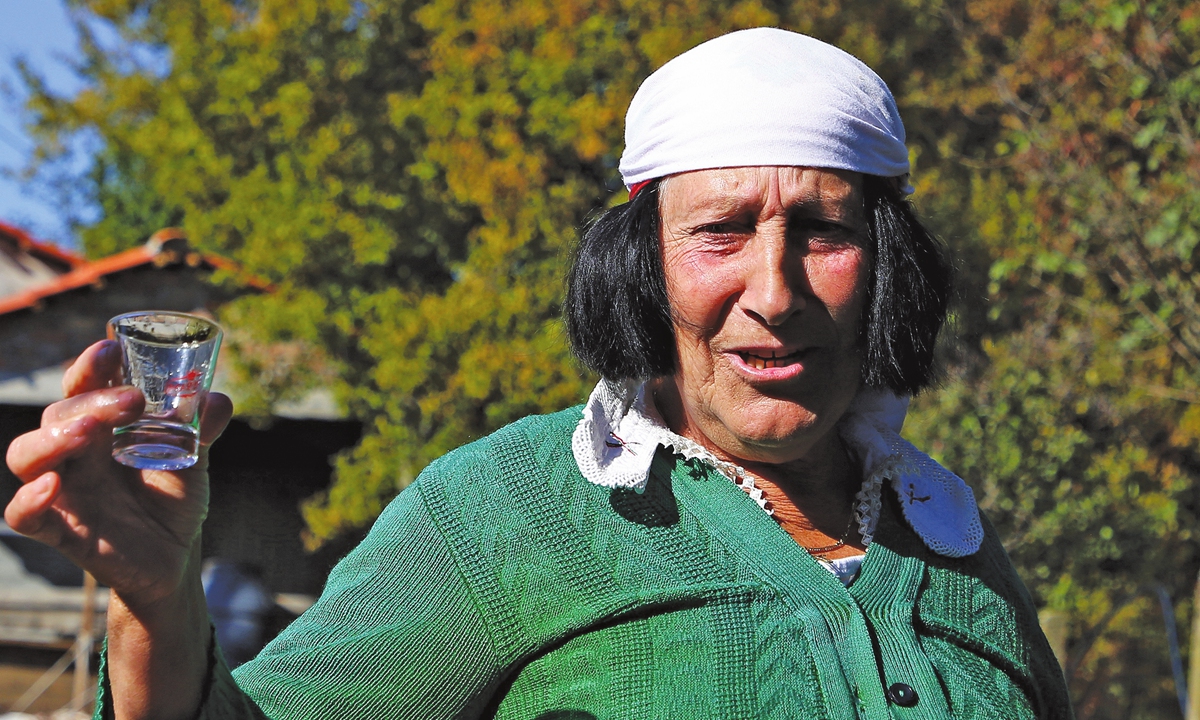Albania’s beloved brandy boosts morale
By AFP Source: Global Times Published: 2020/11/15 17:58:41

Albanian girls in the traditional dress of Miredita, northern Albania, visit Arberi Winery in Rreshen on October 20. Above: 64 year-old Vitore Vas Lufi makes homemade raki, a traditional spirit, using an old still in the yard of her home in the village of Fishta, northern Albania on October 20. Photos: AFP

Albanian girls in the traditional dress of Miredita, northern Albania, visit Arberi Winery in Rreshen on October 20. Above: 64 year-old Vitore Vas Lufi makes homemade raki, a traditional spirit, using an old still in the yard of her home in the village of Fishta, northern Albania on October 20. Photos: AFP
At the bottom of her garden, mother-of-five Vitore Lufi makes raki, a fruit brandy celebrated by Albanians and especially welcome this autumn to lift spirits during the coronavirus pandemic.
Even if large gatherings are not permitted due to virus concerns, it has not dampened enthusiasm for the start of raki season as a source of solace and reminder of happier times.
The clear liquor is popular throughout the Balkans - where it is also known as rakija - and many people make it at home.
While raki can be produced from almost any fruit, the most popular variety comes from fermented grapes, distilled down to a brandy containing around 20 percent alcohol.
In the village of Fishte, in Albania's northwest, known for its vineyards and olive groves, Lufi has been making raki ever since she got married more than four decades ago.
Dressed in a traditional striped red and white apron over white trousers, she fans the flames under a kazan, a two-century old copper cauldron full of fermented kallmet, Albania's indigenous grape variety.
"This is the season of brandy, [a drink] which in itself represents the joy of being together despite this pandemic misery," 64-year-old Lufi said.
Many Albanian families grow grapes and make both wine and raki.
But it is the latter that has a special place in people's lives, as it is drunk at births, marriages and funerals, said Perparim Kabo, anthropology professor at Tirana University.
"It is the symbol of hospitality, of sharing with others moments of joy but also of unhappiness."
Raki also represents the "soul" and has a spiritual role which goes beyond religious rites, he told AFP.
'Man's drink' made by women
Like Lufi, who learned her art from her mother-in-law and now teaches it to her daughters-in-law, many women are involved in making raki, despite it being considered a "man's drink" in this traditional patriarchal society.
Altin Prenga, 38, who owns an agritourism farm and restaurant in Fishte which recently began selling raki made by local women, believes women bring certain qualities to raki making.
"They [women] are more attentive... have a more delicate taste," he said.
Further south, the Arberi winery in Mirdite also celebrates the first day of distillation of a spirit it describes as "clean like mountain water."
While it is a popular drink, the main pleasure of raki is offering it as a gift.
"It would be shameful for a family in Mirdite not to have raki to offer a friend," said Arberi owner Fran Kacorri.
The former agronomist's cellars are well-known for wines that are also exported to the US, Germany and Switzerland, as well as for raki, made the traditional way, in large copper pots.
Raki is also used in popular remedies, such as to soothe a sore throat or mixed with aspirin to treat muscle pain.
Servete Lohja, a doctor in Tirana, said that taken in "very weak doses" raki can be effective in treating period pain or stress.
She also pointed to its "antioxidant and disinfectant" effects.
However, she warned that the popular brandy was "far from being a drug to treat COVID-19," which has so far claimed some 600 lives in the country of 2.8 million people.
Newspaper headline: In good spirits
Posted in: FOOD,CULTURE & LEISURE